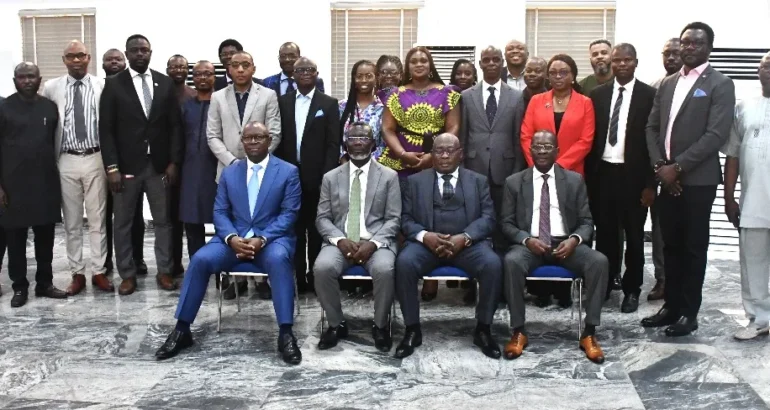The ECOWAS Court of Justice has begun a staff training programme on its new Electronic Case Management System (ECMS) that will digitalise the entire judicial process of the Court from filing to delivery of judgment.
The training is running from March 10 to 14 2024.
In his opening remarks, Justice Edward Amoako Asante, President of the Court stated that the world was moving towards digitalisation and, therefore, it has become imperative for the Court to move its judicial processes online.
He urged the participating staff members to actively engage in the programme, particularly the live simulation and practice sessions.
He explained that the training was being conducted in batches for staff involved in the case management workflow of the Court, and designed to expose them to the functionality of the ECMS platform and to also elicit feedback to finalise it.
Dr Athanase Atannon, Deputy Chief Registrar and Project Director of the ECMS, informed participants of the objectives and desired outcomes of the training programme.
He explained that the training would provide judges and staff with relevant information on the use of the ECMS, expose them to their roles in the System through hands-on exercises, and note their observations and suggestions to improve its functionality before the launch of the final product.
He expressed gratitude to the management of the Court for its unwavering support for the adoption of this new work tool to enhance the efficient operation of the Court.
In addition, he said that the Court would organise training for lawyers and other key external stakeholders on the use of the software.
Dr Frederic Drabo, Project Consultant as well as some staff of the ICT unit and Registry Department, who had earlier been trained in the use of the platform, are facilitating the training programme.
There are presentations on the functionality of the new ECMS, role-based access and workflows associated with the system. Participants will also be shown live simulations of the ECMS from e-filing of a new case to judgment delivery.
The ECMS is designed to standardise the judicial processes of the Court in line with international best practice. When launched, it will eliminate challenges with the use and storage of papers, increase efficiency and performance of the Court, and offer a cost-effective access to the Court by all parties.
Among others, the ECMS has features that allow cases to be filed in the three languages of the Court and can generate analysis and statistics on cases.
Participants at the four-day training programme taking place in Nasarawa State, Nigeria include Honourable Judges of the Court and their Executive Assistants, the Chief Registrar, Directors, Heads of Units, and staff of the Research Department. Also present are some interpreters, and staff from the Communication, Protocol and Accounts Units of the Court.


